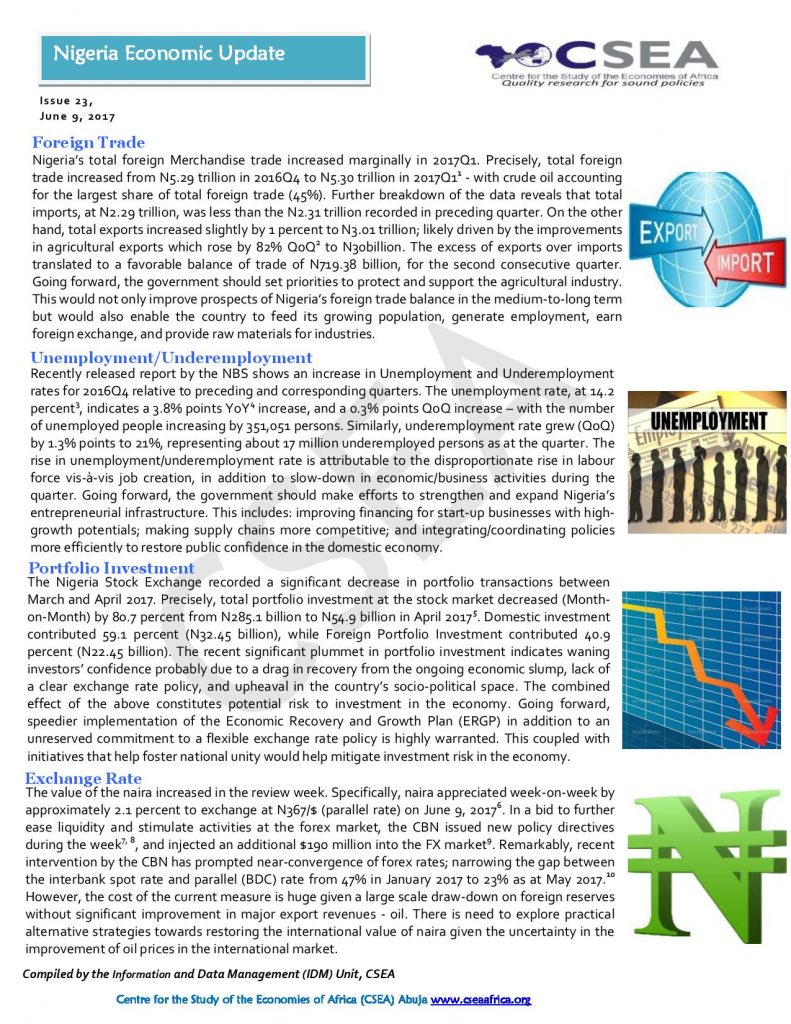Macroeconomic Report & Economic Updates

July 4, 2017
Nigeria Economic Update (Issue 23)
Recently released report by the NBS shows an increase in Unemployment and Underemployment rates for 2016Q4 relative to preceding and corresponding quarters. The unemployment rate, at 14.2 percent, indicates a 3.8% points YoY4increase, and a 0.3% points QoQ increase with the number of unemployed people increasing by 351,051 persons. Similarly, underemployment rate grew (QoQ) by 1.3% points to 21%, representing about 17 million underemployed persons as at the quarter. The rise in unemployment/underemployment rate is attributable to the disproportionate rise in labour force vis–vis job creation, in addition to slow-down in economic/business activities during the quarter. Going forward, the government should make efforts to strengthen and expand Nigerias entrepreneurial infrastructure.
